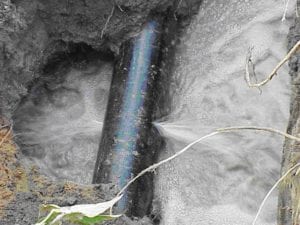The eThekwini Municipality will deploy all available resources in an attempt to reduce the escalating rate of water loss in the City, according to an announcement by the Municipality’s Communications Unit on the 18 September. According to the statement, the Executive Committee (EXCO), at its meeting on Tuesday, 17 September 2013, expressed concern that water loss continues to rise, with the latest figures indicating non-revenue water having risen from 34% to 37%.
EXCO urged City Manager, Sibusiso Sithole to take all possible measures to deal with this challenge, including the use of technology and local communities to detect and fix water leaks. Chairperson of the Human Settlements and Infrastructure Committee, Councillor Nigel Gumede said the problem was further complicated by illegal connections and the mushrooming of informal settlements. He said there was a need to educate the people on water saving and to put a stop to illegal connections. “People need to learn to use water sparingly, and they need to be properly trained about how to detect water leakages because water will soon become an expensive commodity if nothing is done to conserve it.”Sithole said the administration is exploring all possible remedies and 55 people have already been employed to detect water leakages. “We have to try and use every available mechanism to save water, and that is why we now have hired people to detect water leakages where they use a GPS to map the exact location of the leak and this enables our maintenance teams to immediately attend to where a leakage has been identified.”
He said the Municipality was also looking at models from other cities as to how they were dealing with the issue of non-revenue water. The Municipality is currently paying an excess of R163.6m towards Non-Revenue Water annually and the trend is growing by approximately 2% year-on-year. According to the statement, despite this challenge, the Water and Sanitation Unit has made some positive progress in this regard, with interventions like the installation of new Pressure Reducing Valves (PRV), removing illegal connections, metering unmetered properties, maintaining existing PRV’s and conducting active leak detections.






